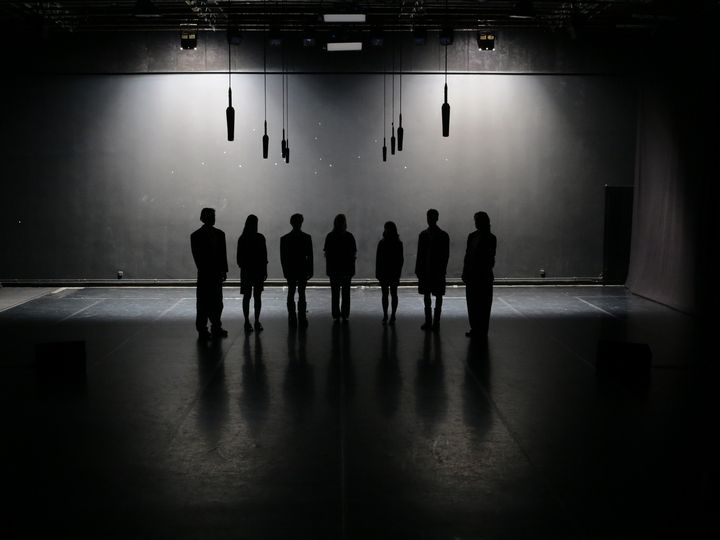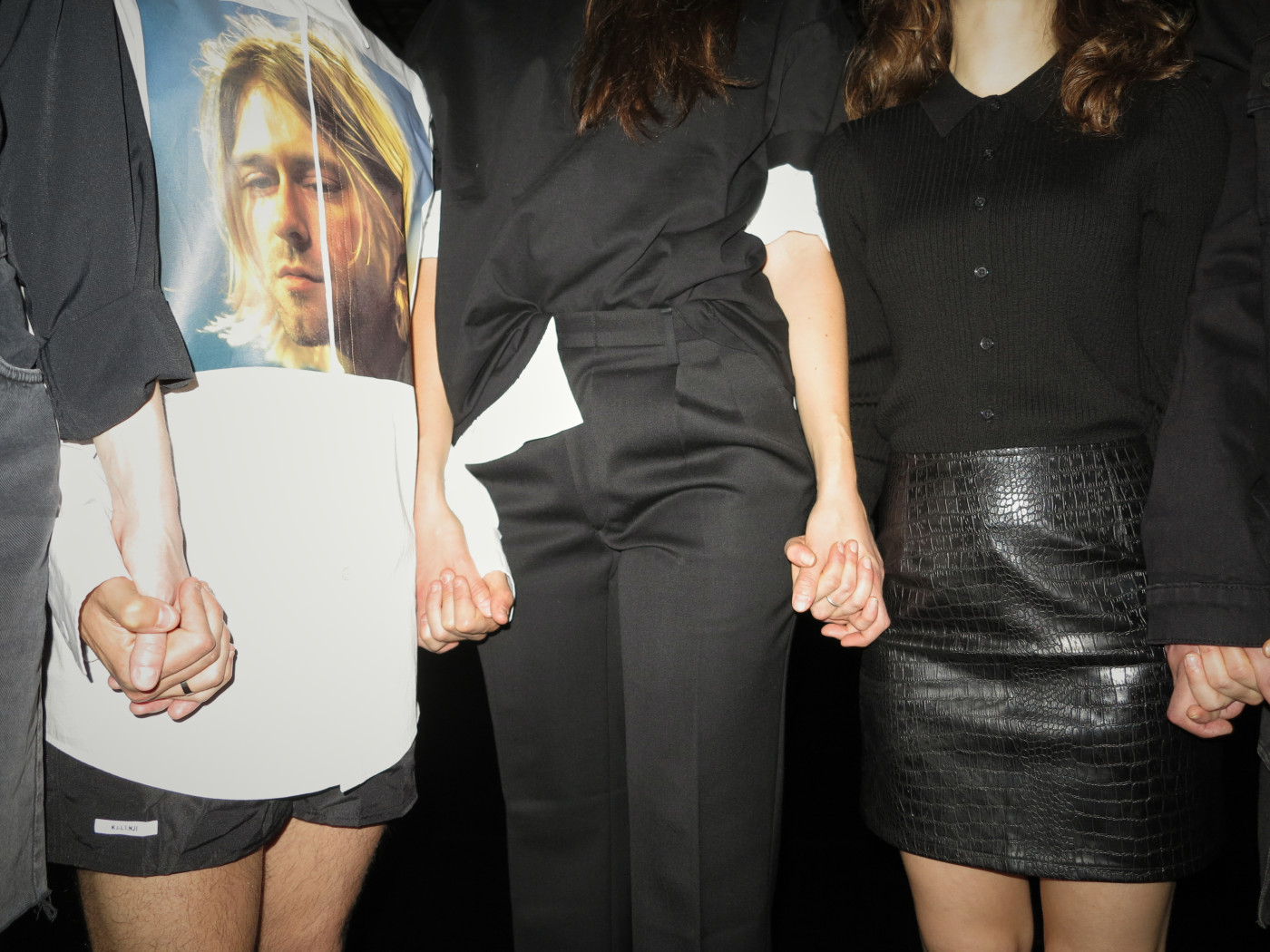Words by Giordana Patumi.
Alessandro Sciarroni’s latest work, U. (un canto), which premiered on July 24, 2024, at the Bolzano Danza Festival, is a mesmerising experience that defies categorisation. Known for challenging the boundaries of dance and performance, Sciarroni once again captivates with a piece that is as much a concert as it is a meditation on the nature of existence. Having seen other works by Sciarroni, I can confidently say that U. is another striking testament to his ability to transcend conventional expectations.
The performance, described as a vocal concert, features seven artists —Raissa Avilés, Alessandro Bandini, Margherita D’Adamo, Nicola Fadda, Diego Finazzi, Lucia Limonta, and Annapaola Trevenzuoli—who stand almost motionless, facing the audience like a traditional choir. Yet, despite this stillness, everything in U. seems to move. The voices, intertwined with contemporary Italian choral pieces, flow seamlessly, creating an atmosphere where time itself seems to stretch and contract. It’s a paradoxical sensation—everything feels suspended, yet it all moves forward in a continuous, uninterrupted stream.
The simplicity of the staging is deceptive. As the vocalists sing, the titles of the pieces, along with poetic introductory lines, are projected onto the backdrop. These projections serve as gentle signposts, guiding the audience through the performance’s eleven pieces. The numbers, almost bureaucratic in their precision, perhaps aim to temper the anxiety of those watching, providing a structure within which the mind can wander.

Sciarroni’s choice of repertoire is both contemporary and timeless, avoiding any trace of virtuosity in favor of a more profound connection with the audience. The songs, selected from compositions by Renzo Bertoldo, Piercarlo Gatti, Bepi de Marzi, Angelo Mazza, and Giorgio Susana, span from 1968 to 2019, exploring themes that resonate deeply with the human condition: the relationship between humanity and nature, the passage of time, and the acceptance of life’s inherent fragility.
One of the evening’s most poignant moments comes with the performance of Fratello Sole, Sorella Luna, a piece that beautifully encapsulates the desire to connect with the natural world, echoing the teachings of the Franciscan community. It is in moments like these that Sciarroni’s genius shines—he walks a fine line between homage and innovation, never slipping into the trite or the overly sentimental.
What truly stands out in U. is its exploration of space and movement—or the lack thereof. The singers advance slowly and almost imperceptibly towards the audience throughout the performance. This minimal movement, coupled with their vocal expressions, creates a dynamic tension that keeps the audience engaged, despite the lack of traditional choreography. As Sciarroni himself wryly notes, “As a choreographer, I worked very little.” Yet, this restrained approach is precisely what makes the performance so powerful.
U. is not just a performance; it is an experience that lingers long after the final note has been sung. Sciarroni has once again proven that he is an artist who resists easy classification, continually pushing the boundaries of what performance can be. In U., the audience is invited not just to watch but to question, reflect, and, ultimately, to be moved in unexpected ways.
In a festival known for its celebration of dance, U. stands out as a piece that dances not with bodies, but with voices, thoughts, and emotions. Sciarroni reminds us that movement can be found in the stillness and that true artistry lies in the ability to make us see the world in a new light. Applause is due not only for the performance itself but for the courage to present something so unapologetically different, something that challenges the very notion of what it means to perform.
U. (un canto) is an unmissable work for those willing to let go of preconceived notions and embrace the unknown—a journey that leads us to question our place in the world and the ways we connect with it. Sciarroni’s vision, as always, is one step ahead, calling us to follow, to explore, and to be surprised.
Where to see U. (un canto) next:
- September 15, 2024 – TORINO, Torino Danza
- September 28, 2024 – CIVITANOVA MARCHE, Civitanova Danza
- November 3, 2024 – REGGIO EMILIA, Festival Aperto
- November 5-8, 2024 – PARIS, Le 104, Festival d’Automne à Paris
- November 9, 2024 – NANTERRE, Maison de la musique, Festival d’Automne à Paris
- November 22-24, 2024 – MILAN, Triennale Milano
- November 30, 2024 – TREMBLAY, Théâtre Louis Aragon, Festival d’Automne à Paris
- January 30-31, 2025 – BONN
- February 7, 2025 – BELLINZONA, Teatro Sociale di Bellinzona
